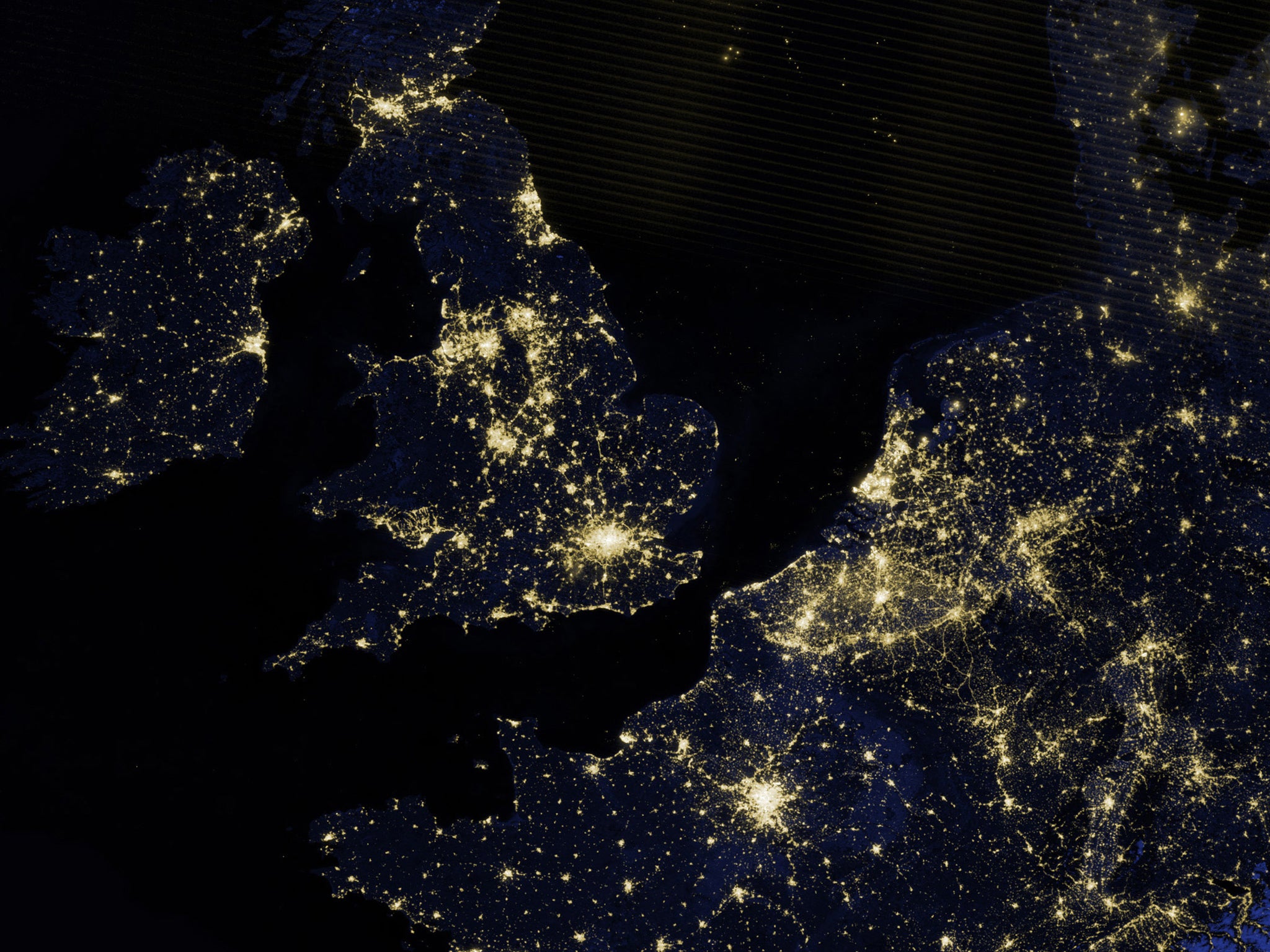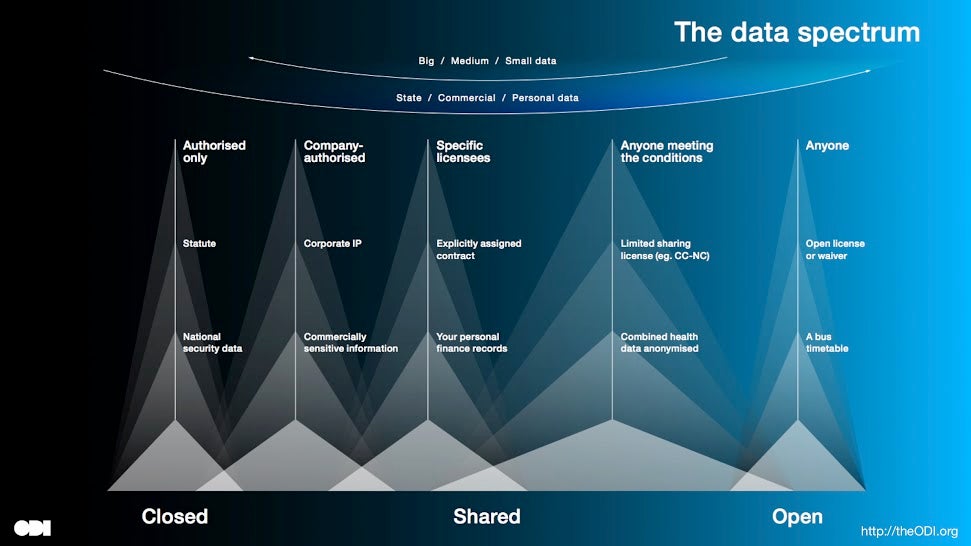Open data: what is it and why are people so scared of it?
It’s being used to find savings in the NHS, and help rescue people following natural disasters — but not everyone's convinced

Your support helps us to tell the story
From reproductive rights to climate change to Big Tech, The Independent is on the ground when the story is developing. Whether it's investigating the financials of Elon Musk's pro-Trump PAC or producing our latest documentary, 'The A Word', which shines a light on the American women fighting for reproductive rights, we know how important it is to parse out the facts from the messaging.
At such a critical moment in US history, we need reporters on the ground. Your donation allows us to keep sending journalists to speak to both sides of the story.
The Independent is trusted by Americans across the entire political spectrum. And unlike many other quality news outlets, we choose not to lock Americans out of our reporting and analysis with paywalls. We believe quality journalism should be available to everyone, paid for by those who can afford it.
Your support makes all the difference.The internet age is entering its next phase, one in which a global network of things looks set to accelerate human progress to break-neck speeds.
At the heart of this technological transition is data. But not just any kind of data — open data.
To understand what that means, and thereby understand why there’s been such resistance to the idea, it’s important to first divorce the term data from all its NSA-Wikileaks-Hacking associations.
Data is simply information, digitised. And on the internet, everything is data. There’s financial data, scientific data, geographical data — and right now almost all of it is closed.
By closed, I mean ‘not public’ — and not exactly allowed to share. That may sound all well-and-good, but who wants all their info out there for anyone to see and use?
But not only is that line of thinking short-sighted, it’s woefully misinformed. Your personal data isn’t being opened up. It’s yours and it will stay yours.
So I held a series of interviews with leading figures at the quango Open Data Institute (ODI) about its government-backed data-driven project.
"Control is essential,” said James Smith, Head of Research and Development at the ODI.
“We’re entering an age where privacy isn’t about what you tell people about yourself, it’s about the data that others collect on you. People need to be given control over information about them, and allowed to give or deny access to it as they want, rather than have it treated as a commodity to be traded."
As Smith points out, it’s not as though your data isn’t already out there making the rounds in the cybersphere. The government tracks it, Facebook and Google sell it.
By the sounds of it, the whole open data thing is really about enabling everyone to access information to use for a greater good. Enter: The Data Spectrum.

In an attempt to clear up the complexities of data classification, and tackle the public’s pretty poor data literacy, the ODI has designed the above infographic to show what type of data goes where.
Gavin Starks, the ODI CEO, said: "Your personal data can span across closed, shared, and open data.
“For example, sharing your personal health records with your doctor - not the world - means they have a complete picture of your health history. Sharing data for research helps society combat disease, but equally we don’t want your personal health data to be made available to ‘anyone for any purpose’ to protect sensitive information."
He added: "Similarly, we need strong legal processes to address our national security, but not at the expense of social freedom."
But as some data stays behind closed doors, and other can be shared with specific people and organisations, there is merit in opening up massive databases to the public.
In doing so, businesses and governments can draw upon the data-expertise of people from the outside.
The Department of Environment, Food and Rural Affairs (DEFRA) is in the midst of making public an astonishing 8,000 datasets — an initiative that’s been dubbed #openDEFRA.
Following Monsanto’s billion dollar purchase of the open data enterprise Climate Corporation, and the success of the Environment Agency open flood data analysis, DEFRA is looking to “support new businesses, invite community-driven innovation and make UK food and farming more competitive than ever”.
Through this we may see developments in UK farming akin to the open data-driven efficiencies achieved in healthcare. Using NHS prescription data, an ODI-incubated startup called Mastodon C identified hundreds of millions of pounds in potential savings — particularly pertinent at a time when the NHS is forced to make do with less. The care.data disaster is but an exception.
And then there’s the business of saving lives. The UN-backed Humanitarian Data Exchange (HDX) has been effectively deployed in response to disasters around the world such as the Ebola crisis and the Nepal earthquakes. In the latter instance, HDX geo data was used to map where in the country needed what kind of NGO support — and how to get it there.
The map below is one of several designed by Code for Nepal within hours of the devastating quake.
"Wikipedia, for instance, doesn’t pay its editors, but still people have built the most incredible repository of human knowledge, together," Smith said.
These are fine examples of the good that open data (and the expert communities that form around it) can do. But it’s even more than this.
It comes back to that next phase of the internet age we’re now entering. If that global network of things is going to fulfil its world-changing potential, where cities are smart, economies are fluid and global challenges like climate change are actually met, open data is kind of necessary.
Starks said: "As our physical world is digitised, we need certain core data assets - registries - to have addresses in the same way web pages do. The billions of web pages that are linked together today wouldn’t be possible without an open web, and an open internet. We won’t have a connected economy and society if we don’t apply this network thinking to our physical world.”
Join our commenting forum
Join thought-provoking conversations, follow other Independent readers and see their replies
Comments